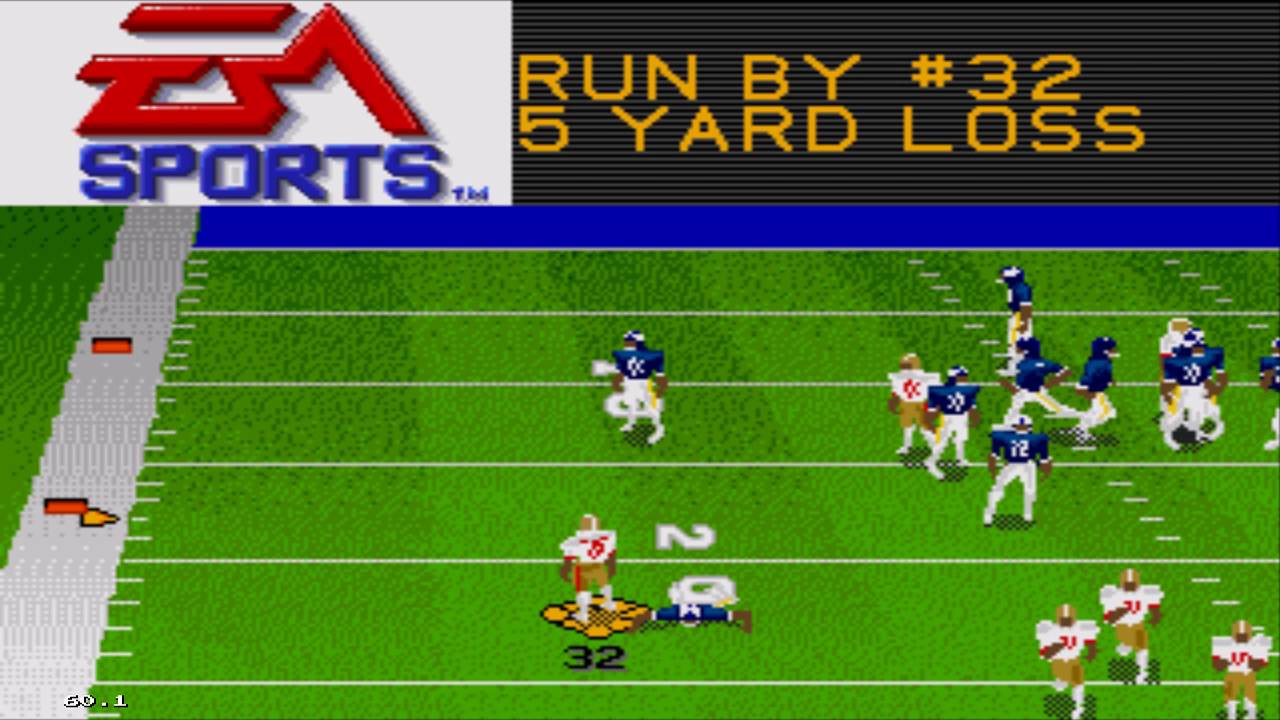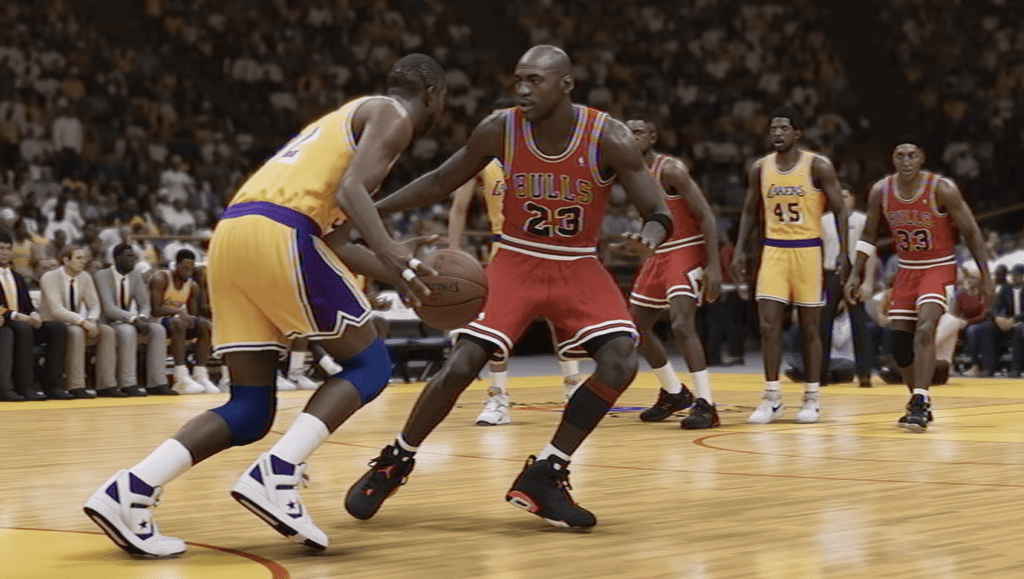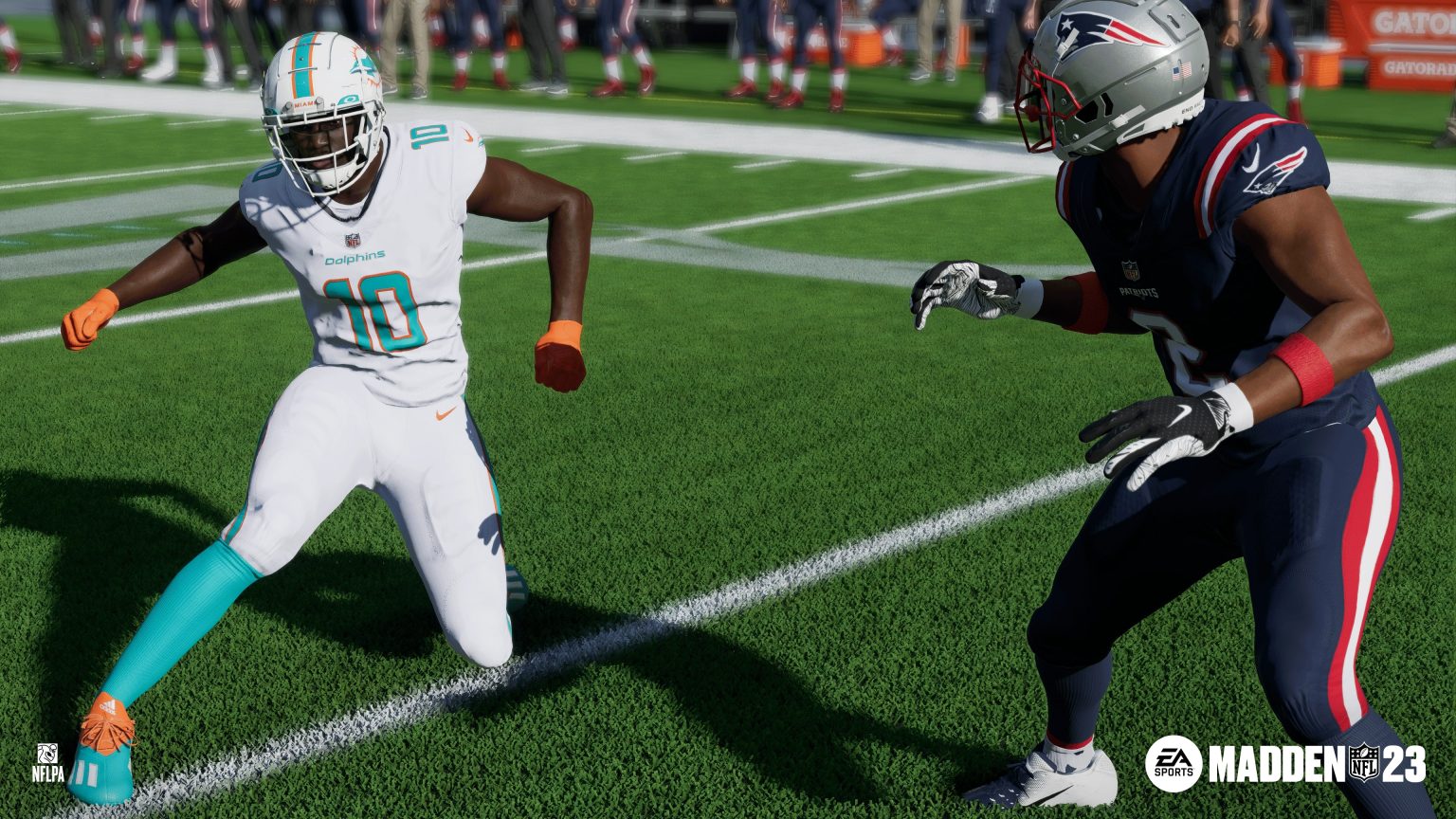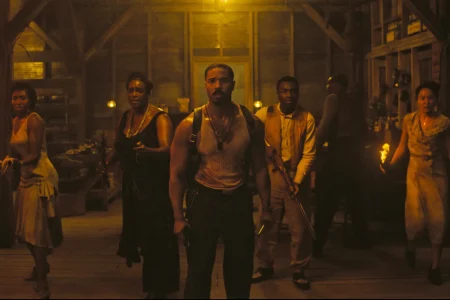The discussion around sports games in recent years has been heavily focused on micro-transactions and card collecting modes, the necessity of these things, as well as a lament of the focus developers seem to have placed on them compared to the standard modes in the game. While I agree with those sentiments, what isn’t being talked about is what’s actually being lost in that focus—and that’s learning about the sport.
I spent hours playing Madden with my father and learning how to recognize and attack the various coverages in the game. I’d always watch on Sundays and Mondays to see what in the real game matched up with what I played, and throwing out what the game allowed me to get away with just because it was a video game. By the time I was 17, I was a walking football encyclopedia when it came to the on-field product. And that likely wouldn’t have happened if Madden was anything other than a sports game.

The Learning Tree
I’ve been playing Madden since Madden ‘94 on the Sega Genesis. Basketball was my first love and the sport I played starting out, so my experience with football was down to whatever I saw on TV. The game was fast and hard hitting, and growing up, I understood next to none of the complexities and subtleties of the game.
My understanding was simple. “See that brown ball in that guys hands? Whoever is holding it gets hit.” Honestly, that’s what kept me watching: A belief that the game was simply a bunch of really big guys playing Tom and Jerry.
It wasn’t until I was older that I understood that football was more akin to human chess, but what helped that understanding grow was my love of playing Madden. Learning what plays were for particular situations and what each position meant and was needed to do made Sundays even more fun. As the video games got more advanced, and TV coverage changed, so did my knowledge of the game. By the time I played football myself at 12, I could wreck a game as a defensive end and protect the QB as a left tackle. My time playing football was short lived because I chose to focus on basketball, but at that point I loved football more and I knew it.

(Not) Lost In Translation
The key in any of these sim-style games is representing the sport accurately from a mechanic standpoint. Yes, the gameplay has to be fun, but if it doesn’t look anything like what you see on TV, then what’s the point? I’ve always loved seeing things in these games that matched what I know from playing in real life. Playing NBA 2K and seeing a defender hedge on a pick and roll (stepping out onto the ball handler briefly to slow down the pick and roll action) is awesome and adds that layer of strategy on both sides that exists in real life without bogging down the actual gameplay.
Like it or not, 2K Sports and EA Sports have a responsibility to represent these sports correctly, ESPECIALLY if they’re going to tout the sim aspects the way they do.
These strategic actions being in place in the game makes people want to dive into the intricacies of the sport and create new fans. And it’s not just limited to true-to-life defensive techniques, but animations. When you can see a cornerback in Madden actually flip his hips to pursue in coverage, it adds that extra layer of immersion because you can see it on Sunday. When you pay attention to the sport in real life and it translates to the game, it makes the experience far more enjoyable in both mediums.

The Game Is The Game
I look at franchises like NBA 2K and wonder how much of the actual sport people learn as they play. With the recent announcement that the career mode in NBA 2K24 will focus just on the sport itself, I can’t help but feel excited but also a little sad that this is a big deal. The 2K series has ALWAYS been a very good basketball sim (absent of the more unnecessary trappings it has recently taken on), but those things have come to define the culture around the game. In some cases, it even seems to inform how people view the sport, and that to me is the worst part of it.
I still love basketball, and I actively avoid engaging in conversations about the sport with people who seem to be more concerned with the reality TV aspects of what goes on because the view of the actual on-court product is affected. Like it or not, 2K Sports and EA Sports have a responsibility to represent these sports correctly, ESPECIALLY if they’re going to tout the sim aspects the way they do.

Keep It Simple
Story modes in sports gaming aren’t inherently a problem, since the franchise modes are where the love and expansion of knowledge of the games come into play. This is where the focus should always be. This is where the two mediums can help each other thrive. Learning the players, the teams, how the leagues work and how the games work in theses modes creates an understanding of and an interest in the real product that can open up new lanes for people in real life.
Imagine learning about a sport with the aid of a video game and then going on to have a coaching or broadcasting career. That’s what these games can do that others can’t: they can truly open up real world possibilities. I hope that things continue to trend towards a normalization where the focus of sports games is on the actual sport, because there’s a lot of good these developers can do with these games.
Anthony is a huge Zelda fan, and a bigger Eagles and AEW fan. He's been gaming for 28 years and has no intention of stopping. Ocarina of Time is his personal GOAT. When he's not playing games, you can catch him talking about sports and wrestling.











